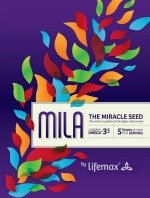Age Related Macular Degeneration and Other Eye Problems
Age related macular degeneration can start with the blurring or complete absence of sight in the center of the field of vision. One of the most difficult of all of eye problems for people over the age of 50, age related macular degeneration is also one of the most difficult to treat.
The macular is a small, yellow dot in the center of the eye that
absorbs harmful rays of blue light. In macular degeneration there is
the appearance of small, misplaced blood vessels behind the retina.
These blood vessels are weak and tend to leak.
In worst form
of the disease, "wet" macular degeneration, accumulation of fluids
lifts the macula from its anchoring tissues and distorts the field of
vision. In the less severe "dry" from of the disease, there is damage
to the retina, but without bleeding or scarring. Both wet and dry
macular degeneration destroy the rods and cones of the retina and rob
sight.
The risk factors for macular degeneration are:
- Exposure to bright sunlight
- Smoking
- Working with chemicals
Smokers
are at higher risk for macular degeneration. In one study, doctors
compared 34 smokers and 34 non-smokers, and found that the non-smokers
had more than twice as much pigment in the rods and cones of their
eyes.
The more cigarettes smoked, the smaller the
amount of pigment. Smoking is a greater risk factor for macular
degeneration in women than in men, even in women who eat a healthy
diet.
Besides giving up smoking, what can you do to
prevent macular degeneration? Your mother was right. Eat your greens.
Collard greens and spinach are especially helpful.
The Beaver Dam Eye Study found that in 2,003 people aged 43 to 84, consumption of:
- Foods
rich in the carotenoids, such as spinach, collard greens, apricots,
carrots, mangoes, and winter squash,
- Foods
rich in lutein and zeaxanthin, such as sweet corn, and the previously
mentioned collard greens and spinach, and
- Foods rich in vitamin E, such as nuts,
Protected
against age-related macular degeneration. The study also found that
drinking wine protected against the disease, but drinking beer
increased its likelihood.
An ideal diet for fighting age related macular degeneration provides lutein, zeaxanthin,
vitamins A, C, and E, selenium and zinc but these natural antioxidants
are useful even if all seven are not consumed together.
Vitamin
C provides protection against bright light by preventing the
degradation of rhodopsin, the pigment that absorbs destructive blue
wavelengths. Selenium and zinc are especially protective against the
"dry" form of macular degeneration, and can prevent the progression of
the disease.
In one study of 150 volunteers who had
macular degeneration, all with corrected vision of 20/80 or less in at
least one eye, those who took a daily selenium and zinc supplement lost
less vision than those who did not, although these trace elements did
not have the same beneficial effect in treating "wet" macular
degeneration.
Certain herbal sources of bioflavonoids
also help. Ginkgo, bilberry, and grapeseed extracts complement the
beneficial effects of other antioxidants by strengthening blood
vessels. This keeps blood flowing through its normal channels in the
eye.
Bilberry's benefits are limited to the eyes, but
ginkgo also helps with memory loss, hearing loss, and vertigo, and
grape seed extract may be helpful when the major problem is loss of night vision.
The benefits of lutein, zeaxanthin, the antioxidant vitamins and minerals, and bioflavonoids are not limited to age related macular degeneration. They are also help in prevention of cataracts, glaucoma, and even presbyopia, as you can read in other articles on this site.
Return From Age Related Macular Degeneration to Vision Over 60





